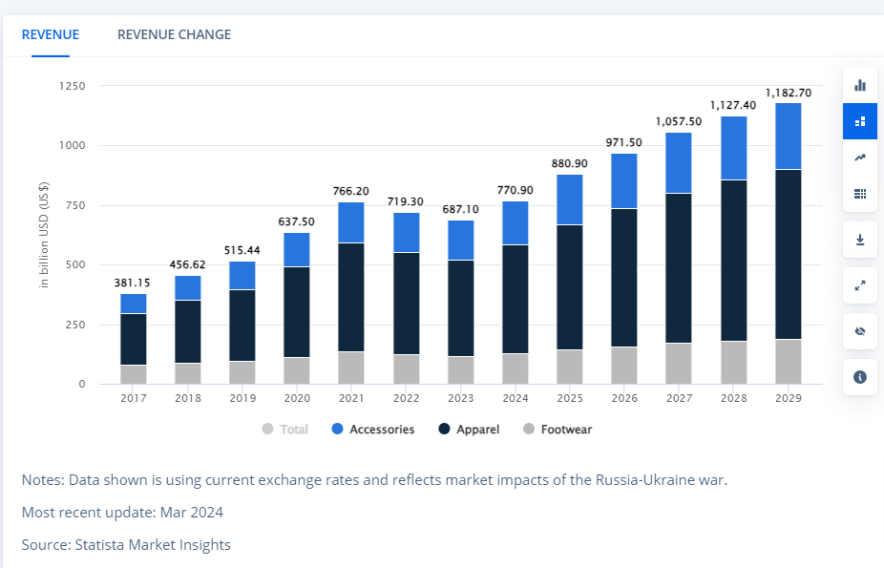Table of Contents
- What Is a Niche and Why Does It Matter
- Aligning Passion With Profit
- Finding Topics With High Demand
- Researching the Competition
- Checking Monetization Potential
- Testing Before Committing
- How SEO Helps Niche Websites Grow
- Common Mistakes to Avoid
- 10 Best Niches for Beginners
- Final Thoughts on Choosing the Right Niche
1. What Is a Niche and Why Does It Matter
A niche is a specific topic or theme that your website will focus on. Think of it like picking one path in a huge forest — it keeps you from getting lost. Choosing a clear niche helps Google understand your site, brings in the right audience, and increases your chances of making money online. Without a niche, your blog may feel confusing or random, and people won’t know what to expect. A solid niche builds trust, makes content easier to plan, and opens doors to affiliate marketing or selling digital products. It’s the foundation of any successful earning website.
🔹 Key Points:
- A niche defines your site’s main focus.
- It helps attract the right visitors.
- Google ranks niche-specific content better.
- Monetization becomes easier with a niche.
- It makes content planning simpler.
2. Aligning Passion With Profit

When choosing a niche, you should look at what you love and what people pay for. Passion keeps you motivated on tough days, while profit keeps your wallet happy. If you pick a niche you hate just because it makes money, you’ll likely quit. But if your passion has no audience or earning power, it’s just a hobby. The sweet spot is the overlap — something you love that others want to read about and spend money on. This mix will fuel long-term blogging success.
🔹 Key Points:
- Choose a niche you enjoy writing about.
- Make sure others are interested in the topic.
- Check if you can earn through ads or products.
- Avoid boring or burnout-prone topics.
- Use passion + market demand as your guide.
3. Finding Topics With High Demand
Even if you love a niche, you need to be sure people are searching for it. Use tools like Google Trends, Ubersuggest, or AnswerThePublic to see what people ask about your topic. A niche with high demand means more traffic and more chances to earn. Look for keywords with thousands of searches per month, but not too much competition. This is how smart bloggers grow quickly — they write what people already want.
🔹 Key Points:
- Research keywords with high monthly searches.
- Use Google Trends to see topic popularity.
- Check for seasonality or year-round interest.
- Find what questions people ask in your niche.
- Balance popularity with low competition.
4. Researching the Competition

It’s good to have some competition — it shows that a niche makes money. But too much competition, especially from big brands, can make it hard to rank. Search your niche in Google and see who’s on the first page. Are they small blogs or huge sites? Can you offer something better or more focused? Look at how they write, what they sell, and what content is missing. This helps you find a space where you can shine.
🔹 Key Points:
- Analyze top-ranking websites in your niche.
- Avoid niches dominated by huge brands.
- Look for content gaps you can fill.
- Study how others use SEO and keywords.
- Identify what makes your site unique.
5. Checking Monetization Potential
Great content is awesome, but can it make money? Before you commit, find out if your niche can support affiliate links, digital products, or display ads. Some topics have lots of profitable products (like tech or finance), while others don’t (like poetry). Check affiliate networks like Amazon, ShareASale, or ClickBank to see if your niche has partners. Also, see if blogs in your niche have ads — it’s a sign the topic can earn well.
🔹 Key Points:
- Look for affiliate products in your niche.
- See if display ads work well on similar blogs.
- Explore info product or course potential.
- Avoid niches with poor ad revenue.
- Make sure your topic has buying intent.
6. Testing Before Committing

Before building a full website, you can test your niche idea with a few blog posts or social media content. See how people respond, check if you enjoy creating content, and measure traffic using free tools. Testing saves you time and money and helps you refine your niche. Many bloggers waste months on a niche that doesn’t work — don’t be one of them. Start small and scale once you’re confident.
🔹 Key Points:
- Write a few sample blog posts.
- Share on social media or Medium to gauge interest.
- Track feedback and traffic data.
- Make improvements based on performance.
- Commit only after validating your niche.
7. How SEO Helps Niche Websites Grow
SEO (Search Engine Optimization) is the secret sauce behind every successful earning website. By targeting keywords, optimizing content, and using proper site structure, your blog can rank higher in Google. This means free traffic, 24/7. Niche websites have a huge SEO advantage — they’re focused, relevant, and easier for Google to understand. Learning basic SEO early can save years of struggle.
🔹 Key Points:
- Use target keywords in your blog posts.
- Structure your content with H1-H3 tags.
- Optimize images and meta descriptions.
- Build backlinks from related websites.
- Keep your content helpful and up-to-date.
8. Common Mistakes to Avoid

Many beginners fall into traps when picking a niche. They chase trends, copy others, or choose topics they don’t care about. This leads to burnout, low traffic, and wasted effort. Avoid picking too broad of a niche, changing your topic often, or ignoring SEO. Think long-term — your niche should be something you can stick with for years. Mistakes can be costly, but they’re easy to avoid if you stay focused and plan smart.
🔹 Key Points:
- Don’t choose a niche just because it’s trending.
- Avoid copying someone else’s blog.
- Don’t skip research and planning.
- Stay consistent with your niche.
- Don’t ignore keyword research.
9. 10 Best Niches for Beginners

If you’re unsure where to start, here are ten beginner-friendly niches. These are proven to work for blogging, affiliate marketing, and display ads. They have large audiences, easy-to-write content, and good monetization options. You don’t need to be an expert — just be helpful, honest, and consistent.
🔹 Key Points:
- Personal finance (budgeting, saving money).
- Health and wellness (home workouts, nutrition).
- Tech reviews and tutorials.
- Parenting and family tips.
- Productivity and self-improvement.
- Food and easy recipes.
- Travel guides and hacks.
- Beauty and skincare routines.
- Home décor and cleaning tips.
- Online learning and study hacks.
10. Final Thoughts on Choosing the Right Niche

Choosing the right niche is like planting a tree — it may start small, but with care, it grows strong and gives results for years. Think about what you enjoy, what people search for, and what can make money. Do your research, test your ideas, and go for the niche that feels right. Don’t wait for perfect. Start simple, stay consistent, and build your future one blog post at a time. Success is just a niche away!
🔹 Key Points:
- Blend passion, demand, and monetization.
- Start with simple, helpful content.
- Research before launching your site.
- Commit and stay consistent.
- Be patient and trust the process.
FAQs About Choosing a Niche for Online Earning
1. What’s the easiest niche to earn money with a blog?
Answer: Personal finance, health, and tech are beginner-friendly and profitable.
2. Can I change my blog niche later?
Answer: Yes, but it’s better to stay focused. Changing can confuse your audience and hurt rankings.
3. How do I know if my niche is profitable?
Answer: Check keyword searches, competition, and available affiliate products.
4. Do I need to be an expert in my niche?
Answer: No. You just need to be helpful, honest, and keep learning.
5. How many blog posts should I write before monetizing?
Answer: Aim for 20–30 quality posts before applying for ads or affiliate programs.
6. Is blogging still profitable in 2025?
Answer: Yes! Helpful, niche-focused blogs are growing more than ever.
7. What are some low-competition niches?
Answer: Local travel, tiny house living, or niche hobbies like origami or 3D printing.
8. Should I write about more than one topic?
Answer: Stick to one niche until you build traffic. Then, you can expand with subtopics.
9. What tools help in niche selection?
Answer: Google Trends, Ubersuggest, and AnswerThePublic are great for research.
10. How long does it take to earn from a niche website?
Answer: With consistent effort, many bloggers see results in 6–12 months.
Please don’t forget to leave a review.
Explore more by joining me on Patreon




